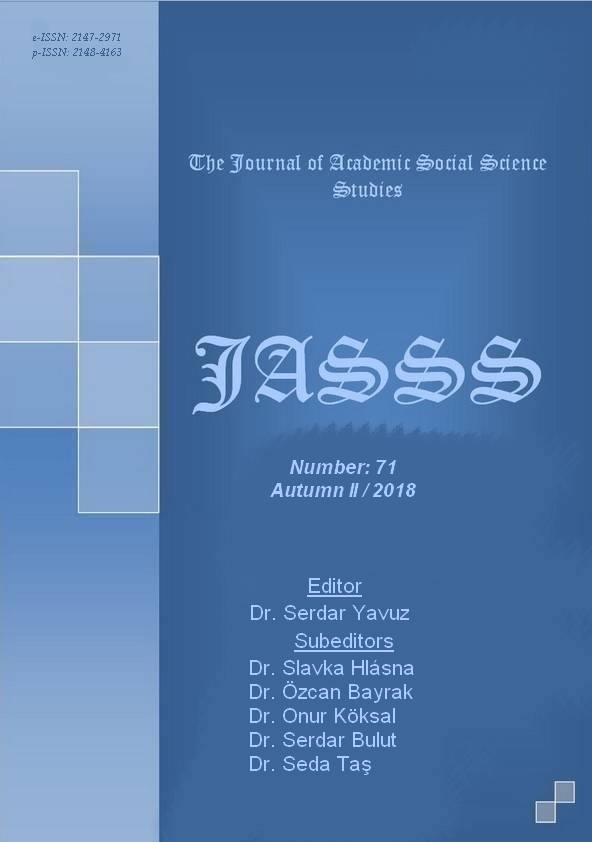Author :
Abstract
Dünyada sağlık, teknoloji, eğitim ve sosyal güvenlik alanlarında yapılan iyileştirmeler ve gelişmelerle ortalama yaşam süresi uzamış, ölüm oranları azalmış, nüfusun yaşlanması ile birlikte birçok sorun da beraberinde gelmiştir. Bu sorunlardan biri ileri yaş hastalığı olarak adlandırılan ve henüz tedavisi bulunamayan Alzheimer hastalığıdır. Dünyada 46,8 milyon, ülkemizde 400.000- 450.000 bini aşkın Alzheimer hastası olduğu tahmin edilmektedir. Türkiye İstatistik Kurumu verilerine göre Alzheimer hastalığından ölenlerin oranı 2011 yılında %2,9’iken 2015 yılında bu oran %4,3’e yükselmiştir. Hastalık; kişide zihinsel, duygusal ve fiziksel kayıplara sebep olmakta ve hastalık ilerledikçe hastanın bağımlılığı da artış göstermektedir. Hastalığın her hastada farklı seyretmesi, psikolojik ve davranışsal semptomlarının olması ve henüz tedavisinin bulunamamış olması diğer hastalıklardan ayıran güç yönleridir. İlerleyen yıllarda daha da yaygınlaşacağı yadsınamaz bir gerçek olan Alzheimer hastalığının bakımı da oldukça güç,yıpratıcı ve yorucu olmakta; hastalık ilerledikçe bakım veren kişinin yükü de artış göstermektedir. Bu çalışmanın amacı Alzheimer hastasına primer bakım veren aile üyelerinin bakım yüklerini etkileyen faktörlerin incelenmesidir. Çalışmada nicel araştırma deseni kullanılmıştır. Çalışmanın örneklem grubunu Sinop ilinde ikamet eden ve Alzheimer hastasına bakım vermekten doğrudan sorumlu olan 108 hasta yakını oluşturmaktadır. Araştırma kapsamında Novak ve Guest tarafından 1989 yılında geliştirilen ve Türk toplumu için geçerlilik ve güvenirliği 2004 yılında Küçükgüçlü tarafından yapılan “Bakımveren Yükü Envanteri” kullanılmıştır. Araştırma sonucunda: Bakım verenlerin çoğunluğunun kadın( %74,1), evli(81,5), 45-64 yaş grubunda (%64,8) ve hastanın kızı(%43,5) olduğu, bakım verenlerin %50 sinin “ailevi sorumluluk” duygusu ile bakım verdiği, %67,6’sının “refakat” konusunda yardıma ihtiyaç duyduğu, %49,1’inin bakım vermeden kaynaklı sağlık sorununun olduğu, sağlık sorunu olduğunu söyleyenlerin %43,5’inin ise psikiyatrik hastalığı olduğu bulunmuştur.Bakım verenlerin medeni durumu, çocuk sayısı, aile yapısı, hastası ile yakınlık derecesi ve evde bakım ücreti alma durumu ile bakım yükü ölçeği arasında istatistiksel olarak anlamlı bir fark olmadığı; bakım verenin yaşı,cinsiyeti, çalışma durumu, gelir durumu,hastalık süresi ve günlük bakım süresi(saat) ile bakım yükü ölçeği arasında istatistiksel olarak anlamlı bir fark olduğu saptanmıştır.
Keywords
Abstract
As the results of improvements and developments conducted on the areas of health, technology, education and social security in the world, the overall lifespan was extended, mortality rate was decreased and so many problems were emerged in association with the population ageing. One of these problems is currently incurable Alzheimer disease which is named to be a disease of elderly people. It has been estimated that the number of the Alzheimer patients are 46.8 million in the world and over 400.000 – 450.000 in Turkey. According to the data provided by the Turkish Statistical Institute, the mortality rate due to the Alzheimer disease was 2.9% in 2011 and increased to 4.3% in 2015. The disease causes cognitive, emotional and physical loses in patients and, as the diseases progresses, the dependency of patients increase. Different progresses at each patients, lack of psychological and behavioural symptoms as well as its being currently incurable make this disease difficult to distinguish from the others. It is a gospel truth that the Alzheimer disease will become more widespread in the forthcoming years and the care of Alzheimer disease is very difficult, abrasive and exhausting, and moreover, the responsibility of caregiver increases as the disease progresses. The aim of this study is to investigate the factors affecting the responsibilities of family members providing primary caregiving to Alzheimer patients. A quantitative research design was applied in this study. Sampling group of this study is constituted by 108 patient’s relative who have direct responsibility of caregiving to Alzheimer disease patients resident in the city of Sinop. “Caregiver Burden Inventory”, which was developed by Novak and Guest in 1989 and whose reliability and effectiveness for Turkish society realised by Küçükgüçlü in 2004, was applied in the scope of this research study. At the end of this research study, it was found that the most of the caregivers were women (74.1%), married (81.5%), at the ages of between 45 and 64 (64.8%) and the daughter of patient (43.5%), 50% of the caregivers had “a sense of family responsibility”, 67.6% needed help on “accompaniment”, 49.1% had health problems due to caregiving and finally 43.5% had psychiatric illnesses who declared health problems. It was determined that there was no statistically significant difference between the “Caregiver Burden Scale” and marital status, number of children, family structure, degree of relationship with the patient and whether receiving any payment while there was statistically significant difference between “Caregiver Burden Scale” and the age, sex, employment status, income status, duration of disease and daily caregiving period (hours).





